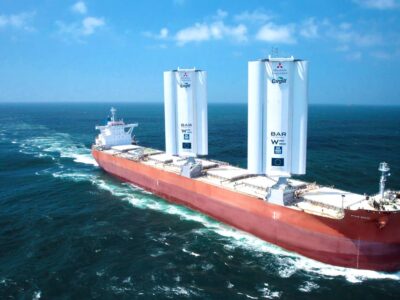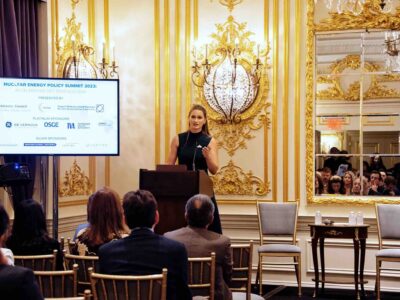Ordering meals for delivery or products to be shipped to your door is not only a convenient strategy, it can sometimes be essential, based on 2020’s global lockdowns. However, from gas expended to the carbon emitted in transit, the environmental costs of delivery should not be understated. With parcel volume expected to “reach 220-262 billion parcels by 2026” and consumers wanting those deliveries increasingly faster, a problem is brewing.
In particular, the “last mile” of delivery, from local warehouse to truck to customer’s home, is inefficient and energy-intensive; researchers from the University of Washington’s Supply Chain Transportation and Logistics Center (SCTL) say the “final 50 feet” drive “25-to-50 percent of the transportation supply chain costs.” A subset of SCTL, the Urban Freight Lab (UFL), thus partnered up with the Seattle Department of Transportation to launch an innovative solution: a zero-emissions last-mile delivery pilot called the Seattle Neighborhood Delivery Hub. Seattle is ideally suited to be one of the first of these pilots, as Sam Zimbabwe, director of Seattle Department of Transportation, points out that “over 60 percent of Seattle’s greenhouse gas emissions comes from transportation.”
Located in a former parking lot near the treasured Space Needle, it is a micro-hub, or a “central drop-off/pick-up location for goods. . . by distributing operations close to the end customer in city centers and offering additional services onsite, these hubs can alleviate congestion, reduce emissions, consolidate freight vehicle trips, reduce vehicle miles traveled, and enable transfers to low or zero-emissions fleet for final mile deliveries.” Essentially, packages will be delivered from hub to final recipient in more sustainable and efficient ways. There is also a future benefit from allowing the city and participating companies to test a variety of technologies, vehicles and delivery models there; the UFL will monitor the experimentation via a Mobile Unit for Sensing Traffic (MUST) — sensors provided by the University of Washington’s Smart Transportation Applications & Research (STAR) Lab and placed on the hub and its modes of transportation to extract learnings and provide feedback. The hub will help the city reach its goals of 30 percent of goods delivered via zero-emissions methods by 2030 and carbon neutrality by 2050. There are also social advantages to shared public space, as Dr. Anne Goodchild, founding director of the SCTL, explains “it’s like a modern shopping center or neighborhood store. It’s lower emissions, and it’s adapted to the new retail model, but it’s still a community benefit.”
The delivery, technology and food preparation companies that have joined the initiative to help it reach its full potential make the hub a truly public-private partnership. For example, BrightDrop, a General Motors business, has provided four-wheeled EP1 electric pallets that products can be loaded onto; they are propulsion-assisted and “designed to help reduce package touchpoints, costs and physical strain on the labor force,” according to senior manager for strategy and operations Bob Tiderington.
The EP1s can also be attached to the electric-assisted cargo trikes provided by Coaster Cycles as a smaller, quieter, and more sustainable form of transport than delivery trucks. Delivery carriers from the hub use AxleHire’s last-mile delivery routing software to calculate optimal routes to the destination.
In addition to owning the land on which the hub operates, REEF also operates a neighborhood or “ghost” kitchen that receives online orders for food delivery from partnered restaurants in other parts of town. REEF’s employees cook the food before it is delivered from the hub to the local neighborhood, allowing customers to get their orders quickly, enabling restaurants to expand their reach without more real estate or overhead costs, and “advanc[ing] our mission of creating walkable 15-minute cities,” in the words of Bill Sleeth, REEF’s head of Physical Product. The restaurant Man vs Fries is already participating through multiple REEF locations.
Finally, there are also common carrier parcel lockers at the hub, hosted by the UFL and funded by the Department of Energy. All major carriers can drop off there, and pick up from the locker is free and available at all hours within seven days of delivery.
While future micro-hubs in other cities may look and operate differently, Goodchild extends the invitation “to imagine what other cool things they could have there.”





